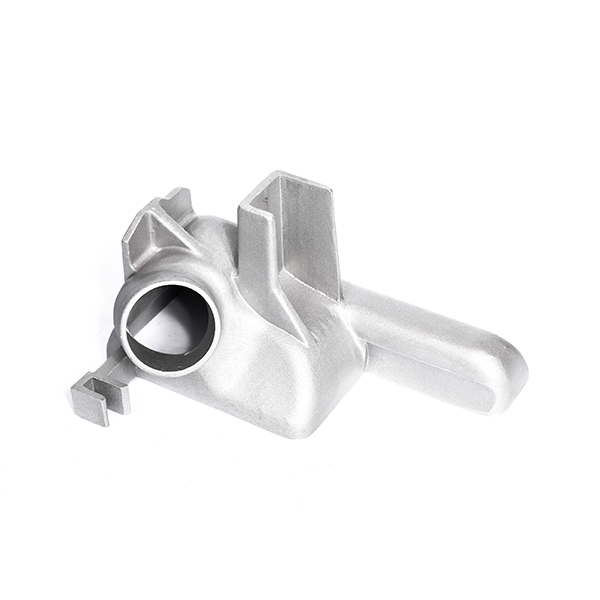Mobile:+86-311-808-126-83
Email:info@ydcastings.com
Brass Impeller Manufacturing and Performance in Modern Pump Systems
The Role and Importance of Brass Impellers in Engineering Applications
Brass impellers are vital components in various engineering applications, particularly in pumps and turbines. These devices are designed to transfer energy from a rotating source, usually an electric motor, to a fluid, thus enabling efficient fluid movement. The choice of material can greatly influence the performance, durability, and efficiency of an impeller. In this regard, brass has emerged as a popular choice for many applications due to its unique properties.
Properties of Brass
Brass is an alloy primarily composed of copper and zinc, but it can also contain small amounts of other metals, such as lead, to enhance specific properties. One of the most significant advantages of brass is its excellent corrosion resistance, which is particularly beneficial in environments where moisture or corrosive substances may be present. Unlike other metals, brass does not rust, making it suitable for applications in various industries, including water treatment, marine, and chemical processing.
Additionally, brass exhibits good machinability, allowing it to be easily shaped and formed into complex designs. This property is crucial when producing impellers, as their design often requires precision engineering to achieve optimal fluid dynamics. The malleability of brass ensures that intricate details can be incorporated into the impeller’s structure, enhancing its performance.
Applications of Brass Impellers
Brass impellers are widely used in various applications, from small household pumps to large industrial systems. In HVAC systems, brass impellers facilitate the circulation of water or refrigerants, ensuring effective heating and cooling processes. In marine applications, they are commonly found in pumps designed to handle seawater, where the corrosion resistance of brass plays a pivotal role.
In the automotive industry, brass impellers are used in cooling systems to ensure that engines operate efficiently. The heat generated by the engine needs to be dissipated quickly, and the design of the brass impeller contributes significantly to this process. Moreover, because of brass's good thermal conductivity, it helps in maintaining optimal temperatures within the system.
brass impeller

Advantages of Using Brass Impellers
One of the major benefits of using brass impellers is their resistance to erosion and cavitation. Cavitation occurs when vapor bubbles form in a liquid and then collapse, creating shockwaves that can cause significant damage to impellers. Brass, with its robust construction and resistance to shock and wear, stands up well against such conditions, leading to a longer service life.
Another advantage is the aesthetic appeal of brass. Many applications, such as decorative fountains or high-end plumbing fixtures, benefit from the attractive appearance of brass, combining functionality with style. The natural luster of brass can enhance the overall design of a product while still providing optimal performance.
Challenges and Considerations
Despite the numerous advantages, there are some challenges associated with brass impellers. For instance, brass is not as strong as some other metals, such as aluminum or stainless steel. In high-stress applications, the lower tensile strength of brass can lead to deformation over time. Therefore, engineers must carefully consider the specific requirements of their application when selecting materials for impellers.
Furthermore, the Zinc content in brass can lead to dezincification in certain environments, particularly when exposed to aggressive water or chemical conditions. Choosing the right type of brass alloy that is resistant to dezincification is crucial in ensuring longevity and reliability.
Conclusion
Overall, brass impellers play a significant role in various engineering applications, offering a blend of durability, efficiency, and aesthetic appeal. Their unique properties make them suitable for use in challenging environments, where corrosion and wear are concerns. While there are considerations to keep in mind regarding their strength and potential for dezincification, the advantages of brass impellers often outweigh these challenges. As technology evolves, the demand for high-performance impellers will continue to grow, and brass will maintain its status as a favored material in this domain. By understanding and leveraging the properties of brass, engineers can design systems that are not only effective but also reliable over long periods.
-
Why Should You Invest in Superior Pump Castings for Your Equipment?NewsJun.09,2025
-
Unlock Performance Potential with Stainless Impellers and Aluminum End CapsNewsJun.09,2025
-
Revolutionize Your Machinery with Superior Cast Iron and Aluminum ComponentsNewsJun.09,2025
-
Revolutionize Fluid Dynamics with Premium Pump ComponentsNewsJun.09,2025
-
Optimizing Industrial Systems with Essential Valve ComponentsNewsJun.09,2025
-
Elevate Grid Efficiency with High-Precision Power CastingsNewsJun.09,2025











